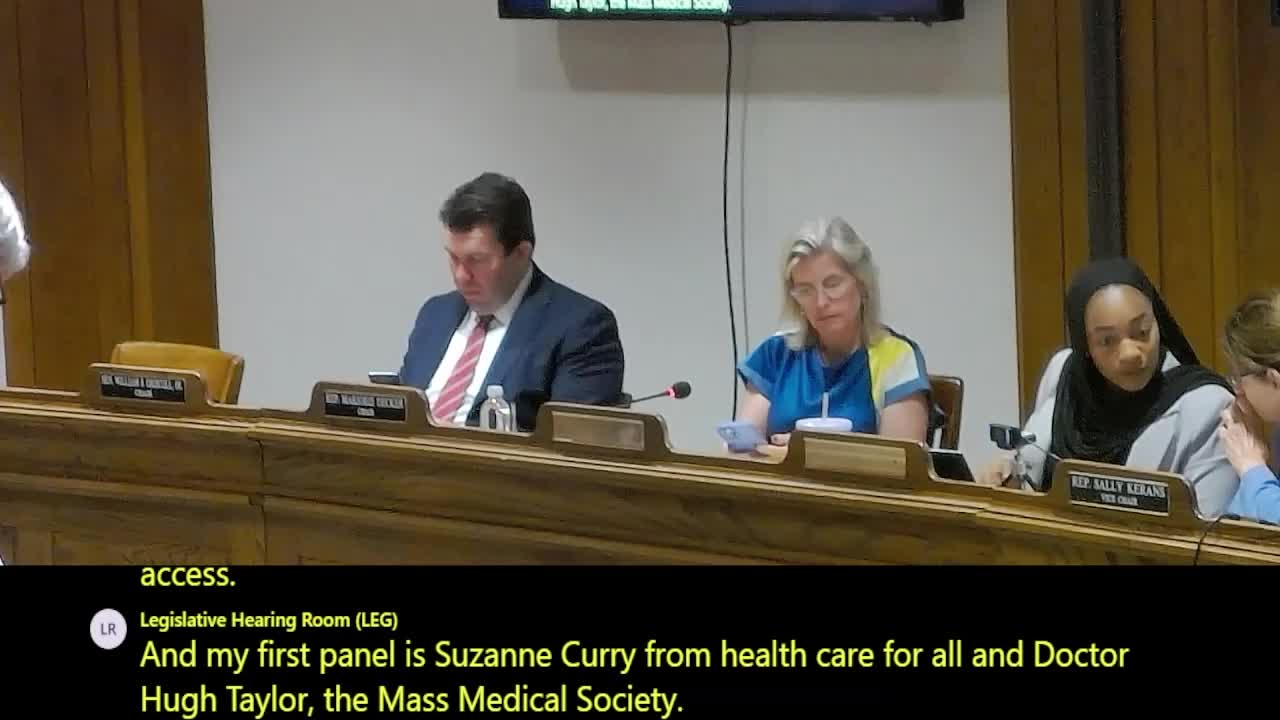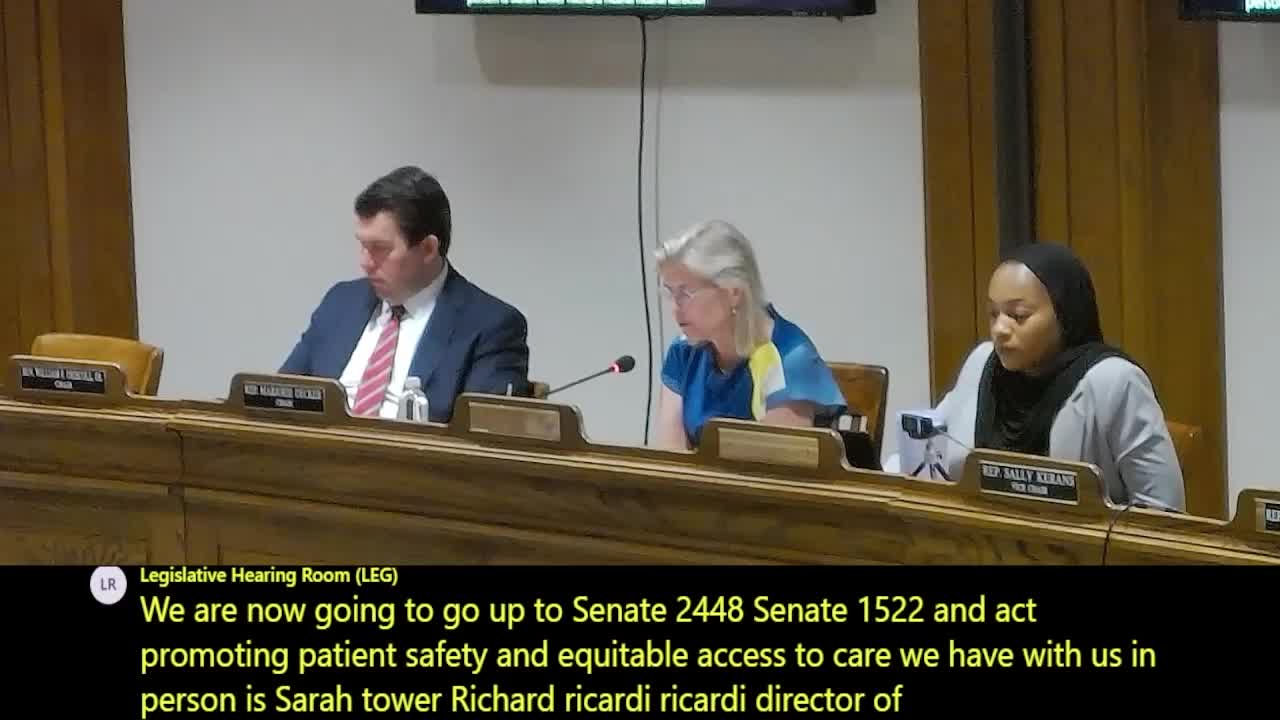Article not found
This article is no longer available. But don't worry—we've gathered other articles that discuss the same topic.

Legislators hear home‑care safety concerns and urge oversight of temporary staffing that may drain providers

Advocates and clinicians press committee to boost primary care spending, payments and training in H.2537

Committee hears survivors, doctors and advocates urging requirement that chaperones be offered for sensitive medical exams

